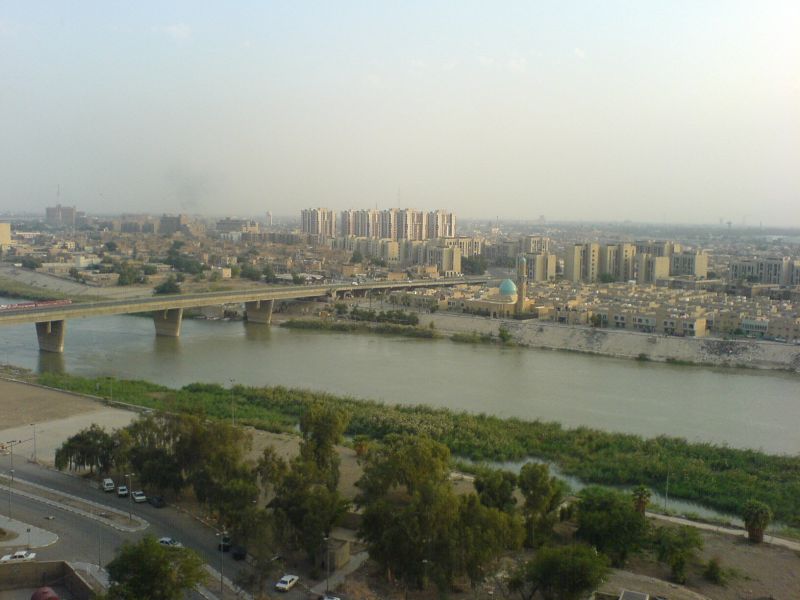World Bank: $210mn Project to Improve Baghdad Water Quality
Published on by Water Network Research, Official research team of The Water Network in Government
A new World Bank project will allocate $210 million to rehabilitate key infrastructure needed to improve the quality of drinking water and wastewater services that will benefit some 5 million Baghdad residents who suffer from water shortages and help prevent the outbreak of waterborne diseases.

Tigris flow through Baghdad, representative image, source: Wikimedia Commons
"The recently completed National Water and Land Strategy (2015-2035) indicates that Baghdad will need substantial investments in its water supply and wastewater treatment systems over the next 20 years," said Saroj Kumar Jha, World Bank Mashreq Regional Director in a press release on Wednesday.
The Baghdad Water Supply and Sewerage Improvement Project will support the Mayoralty of Baghdad and the Baghdad Water and Sewerage Authorities to improve utility management.
The project will also generate employment for the construction, operation, and maintenance stages and will reduce incidences of waterborne diseases to "improve the quality of life, health, and sanitation" for the people of Baghdad.
"In close coordination with the International Finance Corporation, this project will focus on creating a more favorable business environment, and on supporting the preparation of feasibility studies and transactions to enable private sector participation in the water sector," Jha added.
Inadequate infrastructure in Baghdad along with rapid population growth and the influx of internally displaced people from years of conflict has added more strain on Baghdad's water networks.
In addition to daily water service interruptions, there is also contamination of the city's clean water networks and groundwater aquifers due to leakage from sewer pipes.
"Contaminated water supply and improper disposal of sewage force families to spend a significant fraction of their income on medical treatment and to purchase bottled water," the statement read.
"Water supply and sanitation have immediate and major impacts on the quality of life of citizens," said Thikra Alwash, mayor of Baghdad, adding that the city is committed to improving public services for its residents.
The Baghdad Water Supply and Sewerage Improvement Project will finance the construction of a water reservoir that will have the capacity to hold 135,000 cubic meters of water, helping Baghdad to better manage its supply in the event of climate-induced droughts.
The project will also replace approximately 130 kilometers of the water distribution network as well as rehabilitate existing sewerage pumping stations to prevent untreated wastewater from being discharged into the Tigris River, thus preventing additional health risks to residents.
Read full article: Rudaw
Media
Taxonomy
- Drinking Water Security
- Drinking Water Treatment
- Sanitation
- Integrated Urban Water Management
- Urban Water
- Water & Sanitation
- Sanitation & Hygiene
- Urban Resource Management
- Drinking Water Managment
- Drinking Water
- Urban Water Infrastructure
- Water Sanitation & Hygiene (WASH)